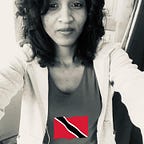Where do I fit in
It is commonly understood that teenagers are the ones to encounter ‘identity crises’. Whilst the term has been somewhat confined to the young generation, it actually is not limited to them. I found myself in this boat at around the age of 25. And it was around then that I began to seek the meaning of life and critically analyze everything that we are taught that we should do to become someone of significance in society.
Erik Erickson, a prominent developmental psychologist, was the man who introduced this concept to the world. He believed that the formation of identity was the most crucial part of a person’s life. I would have to agree that without understanding one’s identity that one will find himself or herself tossed to and fro by the ever-changing norms and beliefs of society, religion, or even family.
People tend to experience identity crises when there is a change or a disruption of the norm. For me, I had my encounter with this when I was cast out of the religious community that I identified myself with. I had committed what they deemed ‘sins’ and as a result, I was no longer welcomed. My life as I knew it felt like it was shattered into bits and pieces that were so dispersed it was nearly impossible to retrieve them. The feelings of rejection pierced my heart so deep that I felt like the person I knew myself to be was buried. For years, I endeavored my very best to find a tribe and find a place where my past was not used as a reference point to determine my character. I thought that it was utterly unfair that I worked tirelessly for years to contribute to a community and work in my salvation, and at a moment’s notice, I was nearly invisible and felt like I was subject to God’s wrath.
This provoked my mind to question concepts of salvation and hell because most of my life was built on the premise that if I did certain wrongs, that I would be condemned to eternal fire and would not experience the bliss of the kingdom of God. My identity was built on the thoughts and ideas that originated from the community that I associated with. I believed that I was a sinner and that I was subject to God’s wrath because of my sins. To make matters worst, I felt like there was truth to the opinions of the elders in the community because of the constant trials that came rushing in like a river.
Not longer after the birth of my second son, he was diagnosed with cerebral palsy, and of course, there were the accusers who used his disability as means of confirming their biases against my actions. In an attempt to massage my ego, I found myself identifying with the special needs community, hoping to find a place of rest and purpose, but it wasn’t giving me the internal peace that I had desired.
With little to no income, because I had to resign from my job and career to care for my children, little support from family, not many friends, and an incomplete education because I had dropped out of university, I felt like I was in a huge world with little sense of importance. Without being told, we are subtly programmed to identify with job status, marital status, education status, wealth status, religious status, and even health status. In the absence of the above, feelings of rejection, shame, and inadequacy kick in. Through the study of the Ancient Hebrew thought, I discovered that who and what you are is not tied to any of those statuses’ but rather it is tied to your identity as a divine being. The Merriam-Webster dictionary defines the word ‘identity as the relation established by psychological identification. We were not meant to psychologically identify with people and things. This is the reason many feel invalidated and void.
Here are two questions that I would encourage everyone to ask and ponder.
If you were to be stripped right now of all the things that make you feel complete in this society, would you still have peace of mind?
Does the identity that you currently relate yourself to allow you to experience your best life?
If you are ready to come into an awareness of living independent of the opinions of people, and status to determine your value, then I would highly recommend our workshop programs. This is what helped me to transition from feeling valueless to knowing my worth and being able to change the lives of people from all over the world to step into the same.
If you would like to become a supporter of my articles, then I encourage you to become a Patreon for under $4 a month.
Abundant Peace!
https://www.patreon.com/keturahbartholomew
